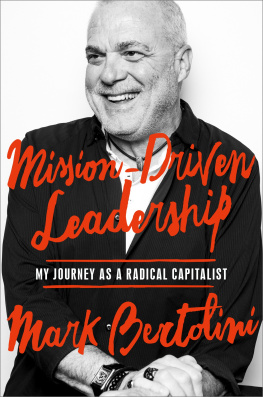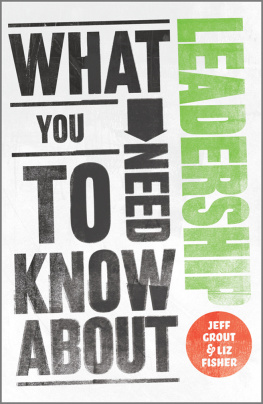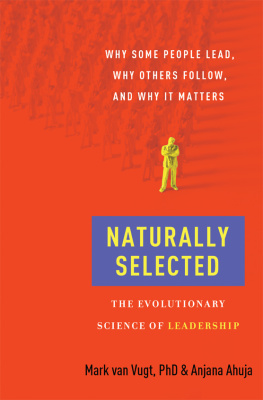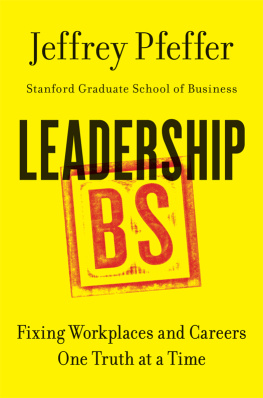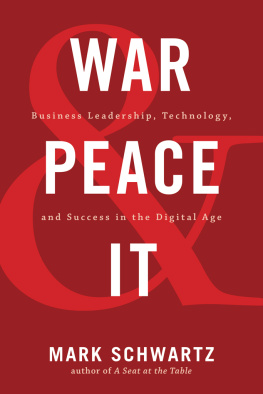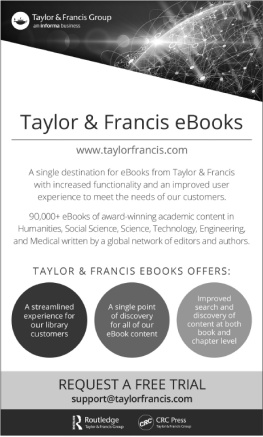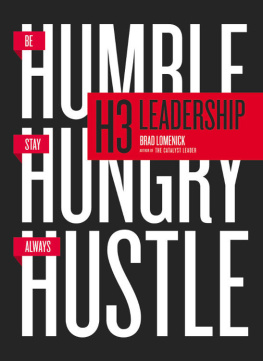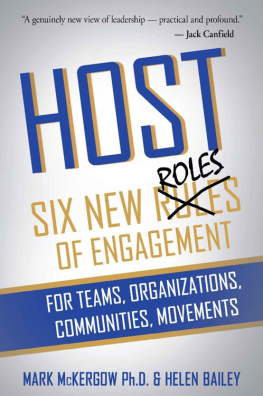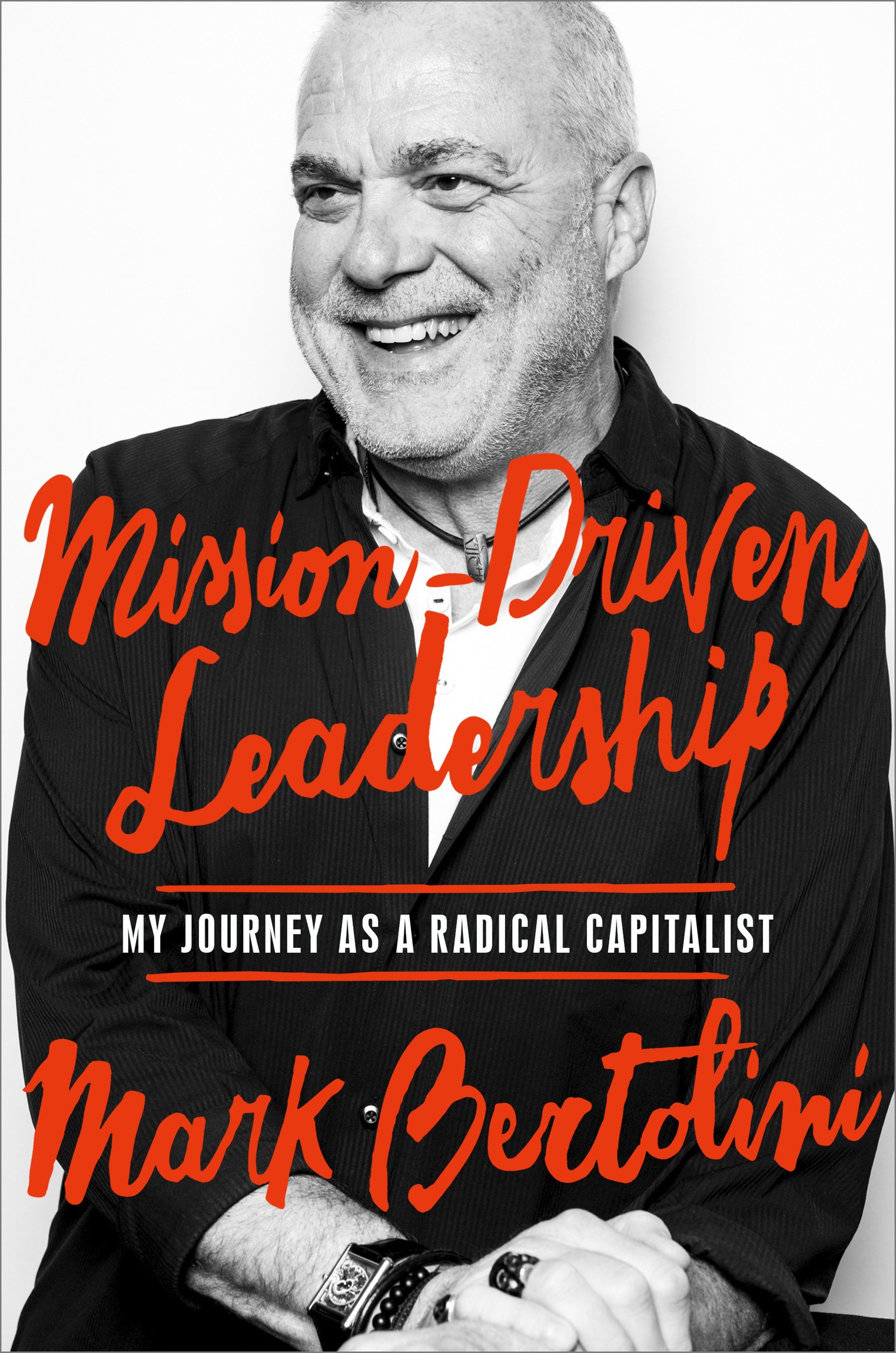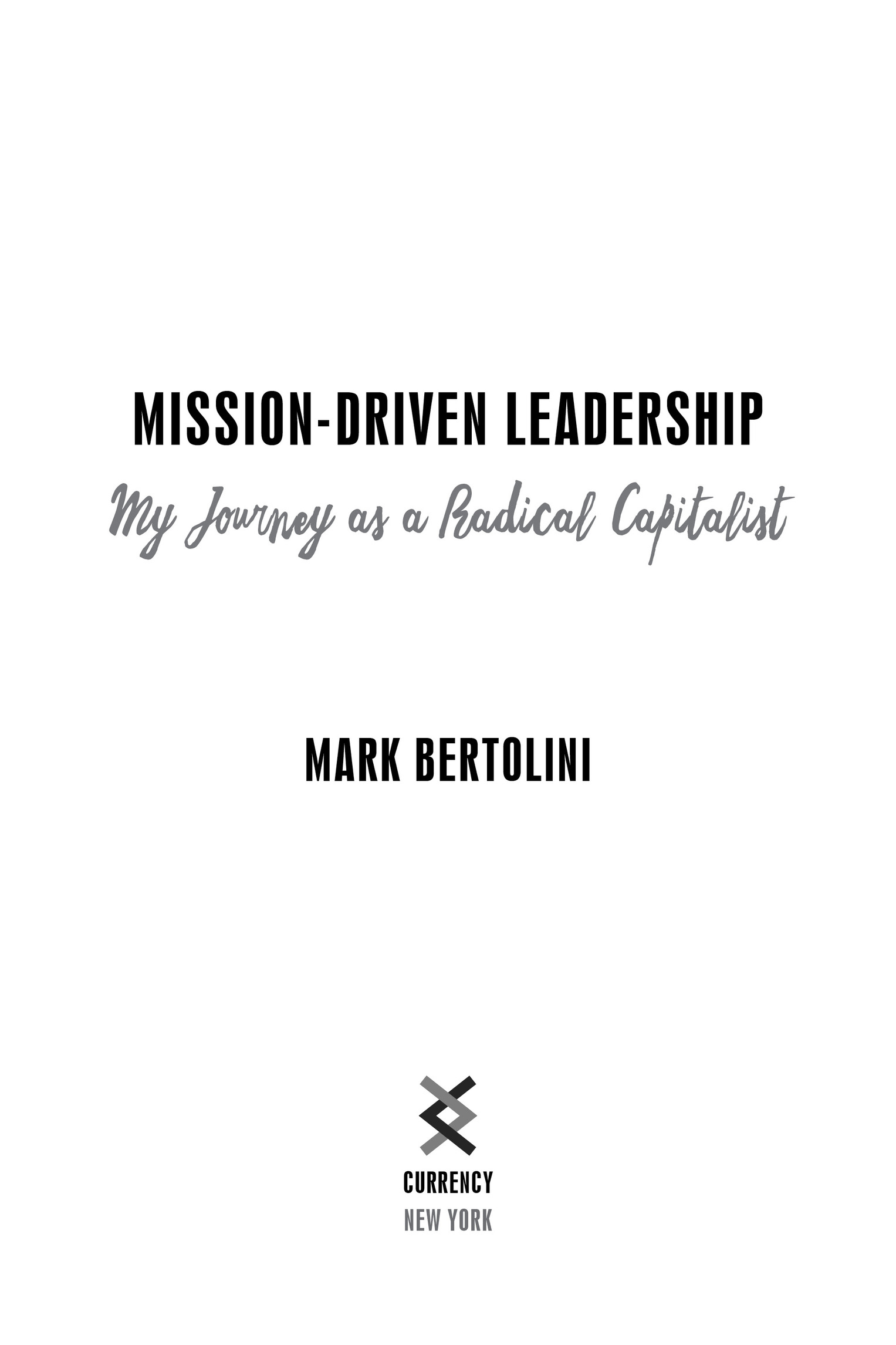All rights reserved.
Published in the United States by Currency, an imprint of the Crown Publishing Group, a division of Penguin Random House LLC, New York.
CURRENCY and its colophon are trademarks of Penguin Random House LLC.
Title: Mission-driven leadership : my journey as a radical capitalist / Mark Bertolini.
Description: New York : Currency, [2019] | Includes index.
Subjects: LCSH: Bertolini, Mark | Insurance executivesUnited StatesBiography. | Chief executive officersUnited StatesBiography. | Leadership. | Insurance companiesUnited StatesManagement. | Health insuranceUnited States
Classification: LCC HG8042.B44 A3 2019 | DDC 658.4/092dc23 LC record available at https://lccn.loc.gov/2018040717
walking hand-in-hand together along lifes way is a joy that can never be fully expressed
your happiness as a man, husband, and father is your greatest gift.
Prologue
VECTORING THROUGH THE STORM
All corporate leaders travel a long road to the top, but once they arrive, they discover that nothing theyve done has truly prepared them. So, their instinct is to be restrained, cautious: Ive got all this power. Ive got all these responsibilities. Ive got all these peopleemployees, customers, shareholderswho now depend on me.
My main purpose is, dont screw it up.
Such is the weight of any leadership position. I felt it when I was named the chief executive officer of the Aetna Corporation in 2010. Much earlier in my career, I had been the CEO of a small health maintenance organization, and I had held senior positions at several large insurers. But I would now be leading a Fortune 100 company that served more than 35 million people across the globe, had $34 billion in revenue, and would soon be paying for health care in every country around the world. Aetna is an industry pillar with a distinguished history, having survived two world wars and the Great Depression as well as the Civil War. Founded in 1853, it wrote life insurance policies for Union soldiers worried about their dependents. It paid claims from the Chicago fire in 1871 and from the San Francisco earthquake in 1906, and it wrote life insurance policies for NASAs first astronauts. In one of our darker chapters, Aetna also issued reparation policies to slave owners, who were then paid back when one of their slaves ran away.
My initial conversations with board members did not put me at ease. The directors told me they felt fortunate that I would be the next person running the company, but there was one catch. Given the increased concerns over the compensation of CEOs, I would not be receiving much of a raise. That was surprising, and I needed to think about it. Betsy Cohen was head of the compensation committee, and I soon met with her at her place in Maine, overlooking the Atlantic. We were on the beach, the water lapping at our feet, a bottle of wine at the ready.
I told her, I think I can do this if you honor your commitment that if I do the right thing over the next three years, youll reward me for it.
Betsy was a lawyer by training who had founded two different banks in Philadelphia over a long, trailblazing career. She considered my request and nodded.
We clinked glasses and I asked, Were done, then?
Not quite.
You know, she said, if you mess it up, well shoot you in the head.
And she smiled at me.
(Betsy proved to be a brilliant mentor and trusted advisor.)
The playful threat was a reminder that I would now be held accountable in completely new ways, and the board, Im sure, had its own concerns. Its members already knew that I was unconventional. Yes, I was driven and demanding, but I also had a radical streak, particularly for a conservative company like Aetna. I practice yoga and meditation and, as Aetnas president, offered those activities to our employees as a workplace benefit. I have half a dozen tattoos, wear old jeans to the office, and generally dont look like your typical corporate chieftain. I told the board that as CEO, I was not going to always wear a tie to work, and I wasnt going to always shave. I would use social media to communicate directly with our members (or customers), and even though I have a disabled left arm, I would continue to downhill-ski and ride my motorcycle.
Why? Because thats who I am, and I need to be me if Im going to do this job.
This book is my attempt to explain some of the skills and insights that I believe are essential for any leader in America today, a book that draws heavily on my own experiencesthe good, the bad, and the near fatal. If you work in the business world, you already know about our challenges with global economic change and technological disruptions, and how those have changed the leaders role. The days are long gone when CEOs, or anyone in power, can dictate the truth to those they seek to lead. Our employees now receive their information from supercomputers in their pockets, rendering edicts from the mount (or the C-suite) as just another item in their already crowded newsfeed. We still run businesses out of brick or glass buildings, but the four walls dont exist as they used to: employees now have instant access to whats happening at other companies across their city, across their country, and even across the world. They are emboldened, smart, and skeptical. If you say something that isnt true, they will correct you; if you do something thats misguided, they will expose you; and if you fear the moment, they will challenge, ridicule, or ignore you.
Authority isnt what it used to be.
I have other concerns. When I became CEO, I told the board that one of my goals was to restore the credibility of corporate leadership in the eyes of Americans. That credibility has eroded, I believe, because of our own passivity in the face of dire social problems. Corporations cant be run like medieval city-states against the plague, with the drawbridge raised and everyone hiding behind the castle walls. The plague isnt going away, and our politicians seem paralyzed, so companies have to take the lead on such problems as income inequality, education, and health care.
I admit to being an unlikely voice of the establishment. I grew up railing against the man. Which is fine, except then one day I became the man, so now what? The answer is, to share what Ive discovered, about leadership and life, in a way that will be meaningful to others.
What I have to share also reflects a personal journey that I wouldnt wish on anyone but which brought me to where I am today.
I grew up in Detroit, part of a large, blue-collar family, and I had expectations of doing better than my father, with enough money for a place in northern Michigan where I could go on the weekends, riding snowmobiles in the winter, hunting in the fall, and shooting pool year-round. Almost as an afterthought, I got an MBA and embarked on a career in health care management. My main skill is that I know how to fix things, and Ive held a series of jobs that have required me to either start up or turn around a business.

